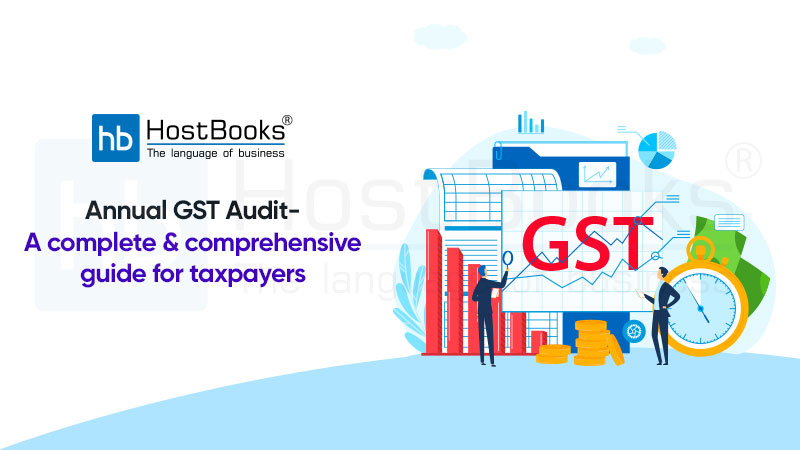Annual GST Audit- A Complete & Comprehensive Guide for Taxpayers

Audit under GST is simply related to the inspection of returns, records, and other documents furnished by the taxpayer. GST Audit is carried out to test whether the turnover (Supply), taxes paid, ITC refund claimed and ITC availed mentioned in the taxpayer’s annual report are true and fair or not. Moreover, a GST audit also provides a great help in evaluating whether the taxpayer is compliant with the GST provisions or not.
This is an important exercise because the GST taxation regime depends on the individual’s honesty and trust, wherein the taxpayer is required to assess his own liabilities. Thus a crucial mechanism sort of a GST audit is required to confirm that the self-assessment by the taxpayer is accurate, transparent, and devoid of any financial discrepancies. This is a check and balance that is placed by the Govt. to curb fraudulent activities among businesses and professionals. And the taxpayers are liable for their tax claims.
|
The Audit described under GST |
||
|
Audit by taxable person |
Audit by GST tax authorities | |
| 1. File Audited Returns
2. Audited Accounts 3. Reconciliation statement |
General Audit | Special Audit by CA nominated by commissioner |
Eligibility for Audit under GST
Any registered taxable person whose annual aggregate turnover exceeds 5 crore INR during a year (F.Y 2018-19) has to get their accounts audited. The eligible taxpayers are required to get their records and account audited either by a certified CA (Chartered Accountant) or a CWA (Cost and Work Accountant).
It shall be noted that the audit under GST is disbursed state-wise. This is often the explanation of why a separate GST audit is finished for every unique registration under the identical Permanent Account Number (PAN).
Applicability for the Audit under GST
Every registered person must get its accounts audited if the turnover during (FY-2018-19) exceeds Rs. 5 Cr from the sale of products and/or services. Calculation of turnover shall be PAN based i.e. all sales of goods/ services shall be taken for computing the limit of Rs. 5 Cr.
GST audit limit is the same for all registered taxpayers, i.e. no separate limit is specified for special category states or UTIs.
Documentation required for GST Audit
- The management must submit the subsequent documents, reports, and invoices within the event of a GST Audit:
- Invoices and agreements, GST return filings, documents on details of payment of tax, sales, and credit availed.
- The representation letter, offer letter, engagement, and appointment letter of the auditor which details the target of both the auditor and management.
- Important electronic (Excel, PDF, JPEG) documents/working papers must be submitted during the GST audit.
- The GST audit checklist should be submitted at the time of the auditing.
- Report on the gap analysis of the inner controls during an internal audit and other crucial aspects identified during the audit.
- Crucial critical points and risk assessment procedures incorporated in areas of high, medium, and low risk.
- Report on the findings and evidence gathered during the internal audit
Submission of GST Audit report (Part-B) and Reconciliation statement (Part-A)
After GSTR-9C gets audited by the CA or CWA, the subsequent things shall be reported by him or her:
- Whether the correct records of transactions are maintained.
- Whether the Financial Statements are prepared as per the books of accounts.
- To certify the authenticity of the data in GSTR-9C.
- To mention the other observation or to feature any comment thereof
Penalty for not submitting the GST Audit Report
Under GST, there’s no such specific penalty for not submitting the GST Audit Report. Hence, the final provisions of the penalty (other than late fees) are applications that will amount up to 25,000 INR.
However, a GST auditor is the perfect catalyst for smoothening the Annual Return filing and Audit Report submissions. From documentation to return filing, a GST auditor ensures all verticals add perfect tandem for zero-friction reconciliation with audited financial statements with the GST audit.
Although GST has passed many years, still it is not everyone’s cup of tea. Businesses are facing challenges in the transition and application of GST. To know more about GST, feel free to contact us or read more of our articles.

Try HostBooks
SuperApp Today
Create a free account to get access and start
creating something amazing right now!
















